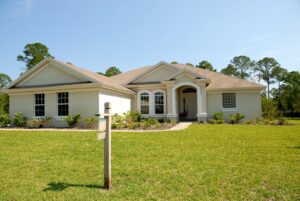
The dream of owning a home is universal, but the cost of construction can often be a barrier. In South Africa, where the housing market is diverse and complex, building a low-cost house requires careful planning and strategic decision-making. This guide will walk you through everything you need to know about constructing an affordable home in South Africa, from understanding the building costs to navigating government subsidies and construction quality standards.
Understanding the Housing Market in South Africa
South Africa’s housing market is characterized by a wide range of housing demands driven by factors such as population growth, urbanization, and economic disparities. The demand for low-income housing is particularly high, leading to various government housing programs aimed at providing affordable housing options.
The South African government has introduced initiatives like the Finance Linked Individual Subsidy Programme (FLISP), which assists first-time homebuyers in securing affordable mortgages. Understanding these programs is crucial as they can significantly reduce the financial burden of building a low-cost house.
Factors Influencing the Cost of Building a Low-Cost House
Location
- The location of your building site plays a crucial role in determining the overall cost of construction. Urban areas tend to have higher land costs and building permits, while rural areas may offer more affordable options but might lack essential infrastructure like roads and utilities.
Construction Materials
- The choice of construction materials can greatly impact your budget. Opting for local materials can reduce transportation costs, while eco-friendly materials can enhance the sustainability of your home. Prefabricated houses, which are modular homes assembled on-site, are gaining popularity as they can reduce both material costs and construction timelines.
Labor Costs
- Labor costs in South Africa vary depending on the region and the availability of skilled workers. Hiring a reliable contractor who understands the local market can help keep these costs in check. It’s important to budget for both skilled and unskilled labor, as well as consider any labour regulations that might affect your project.
Building Permits and Regulations
- Securing the necessary building permits and adhering to local building regulations are essential steps in the construction process. These can include zoning laws, environmental assessments, and health and safety standards. Failing to comply can result in delays and additional costs.
Design and Architecture
- The design of your home will influence both the cost of materials and the construction timeline. Simple, efficient designs tend to be more cost-effective. Engaging with an architect who specializes in affordable housing can help you maximize your budget without compromising on quality.
Quality of Construction
- While building a low-cost house often involves cost-cutting, it’s crucial not to compromise on the quality of construction. Using substandard materials can lead to higher maintenance costs in the long term. Ensure that your contractor follows building standards to deliver a durable and safe home.
Government Subsidies and Financial Assistance
- Various government subsidies and housing grants are available to assist in building low-cost houses. Programs like FLISP offer subsidies based on income, which can be used towards the purchase of land or the cost of construction. Additionally, tax incentives for eco-friendly homes can reduce overall costs.
Mortgage and Financing Options
- Financing is a significant consideration when building a low-cost house. Traditional home loans are available through banks, but government-backed financing options might offer lower interest rates or more favorable terms for low-income earners. Exploring different financing options can make homeownership more accessible.
Impact of the Local Economy
- The local economy influences material costs, labor rates, and the overall cost of living. In a fluctuating economy, prices of building supplies can vary, and it’s essential to budget for potential increases in construction expenses.
Eco-Friendly and Sustainable Building
- Incorporating eco-friendly features into your home not only contributes to environmental sustainability but can also lead to long-term savings on utilities. Energy-efficient homes with features like solar panels, rainwater harvesting, and proper insulation can reduce monthly expenses and increase the resale value of your property.
Step-by-Step Guide to Building a Low-Cost House
Define Your Budget
- Start by defining a clear budget that includes all potential costs, from land acquisition to construction materials and labour. Include a contingency fund for unexpected expenses.
Choose the Right Location
- Select a location that balances affordability with access to essential infrastructure. Consider proximity to schools, healthcare facilities, and employment opportunities.
Design and Planning
- Work with an architect to create a design that meets your needs while staying within your budget. Focus on simple, efficient designs that use space effectively.
Secure Financing
- Explore financing options and apply for any available government subsidies. Ensure that your financing plan aligns with your budget and allows for manageable repayments.
Obtain Necessary Permits
- Apply for the required building permits and ensure that your construction plans comply with local building regulations. This step is crucial to avoid legal issues and delays.
Source Materials and Hire Contractors
- Choose construction materials that offer the best balance between cost and durability. Hiring a reputable contractor with experience in affordable housing will ensure that your project stays on track.
Construction Phase
- Monitor the construction process closely to ensure that the project adheres to the schedule and budget. Regular site visits and communication with your contractor are essential.
Final Inspection and Handover
- Once construction is complete, conduct a final inspection to ensure that everything meets your expectations and complies with building standards. Address any issues before final payment and handover.
Cost Breakdown of Building a Low-Cost House in South Africa
To provide a clearer picture, here’s a typical cost breakdown for building a low-cost house in South Africa. Note that these figures can vary based on location, design complexity, and materials used.
- Land: R50,000 – R200,000 (depending on the location)
- Design and Architecture: R15,000 – R50,000
- Permits and Approvals: R5,000 – R15,000
- Construction Materials: R100,000 – R300,000
- Labor: R50,000 – R150,000
- Utilities and Infrastructure: R20,000 – R50,000
- Contingency Fund: R20,000 – R50,000
Total Estimated Cost: R260,000 – R815,000
These figures represent a general range for a low-cost house and are subject to change based on the specifics of the project.
Conclusion
Building a low-cost house in South Africa is a viable option for many, thanks to the availability of affordable materials, government subsidies, and innovative building techniques like prefabricated houses. By understanding the factors that influence construction costs, choosing the right location, and working with experienced professionals, you can achieve the dream of owning a home without breaking the bank.
The key to success lies in meticulous planning, realistic budgeting, and making informed decisions throughout the process. With the right approach, building a low-cost house can be a rewarding investment that provides long-term benefits and financial security.
Do you have a home building or renovation project that needs urgent attention? Contact us now at Muscle Home Renovations Pty Ltd. We have a team of experienced building contractors that delivers exceptional results beyond your expectation.
Cell:073271184
